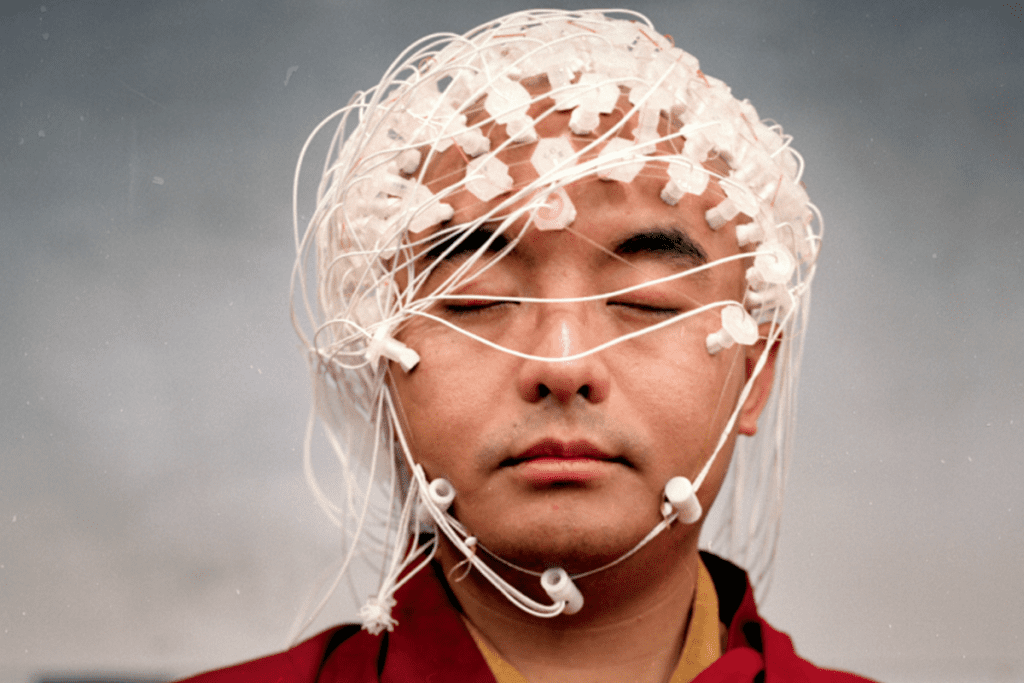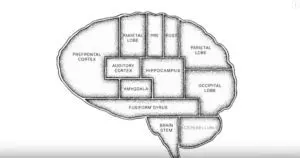Summary
“Anxiety” puts the format to great use in communicating the feelings of anxiety, while exploring its current prominence and what might be influencing it.
This recap is of The Mind, Explained Season 1 Episode 3, “Anxiety”. You can read our recap of the previous episode by clicking these words.
The Mind, Explained Episode 3, a topical chapter focused on anxiety, opens to disorienting effect by simulating the effects of a panic attack. Such an attack is a form of anxiety — the various forms are helpfully divided into a table that is returned to multiple times throughout the episode — and anxiety is the most common mental illness in the world, one that, surprisingly to me, isn’t linked to depression as closely as people think.
An excellent animated model of the flight or flight response in nature helps to articulate the evolution of anxiety from a natural defence mechanism to a disorder. Much of The Mind, Explained Episode 3 is devoted to exploring avenues by which this might have happened, as well as the reasoning behind why today, despite the rates of anxiety disorders remaining unchanged, we continue to see an uptick in anti-anxiety prescriptions and Googling of what anxiety actually is — and how it can be dealt with.
The sheer range of manifestations is staggering, from the overwhelming panic of agoraphobia to the rituals of OCD — easily the most commonly-claimed anxiety disorder among a general public that is generally ill-informed. Anxiety is in part genetic, and women are twice as likely to suffer from it as men, but it’s also caused by life experiences. A harrowing real-life experiment to essentially implant a phobia into a very young child — the “Little Albert” experiment — shows how external factors can contribute to anxiety, leading sufferers to over-generalise and make huge crises out of relatively mundane happenings.
Lots of The Mind, Explained Episode 3 is revealed to be inconclusive. What’s the link between social media and anxiety? Does Tweeting exacerbate things, or do those predisposed to anxiety simply find themselves more attracted to screens? Is the increasing acceptability of discussing mental health the reason behind the surge of prescriptions and research, or are there other factors to consider? Either way, the reality that we keep introducing new things to be anxious about seems uncontroversial to me.
The common thread to be found among the so-called “solutions” to anxiety seems to be an acknowledgement that whatever you’re anxious about won’t be the end of the world; when you reach a point when you can’t be more anxious, and yet you’re still capable of going on, you learn to understand that you can get through it. So let this function as a helpful reminder that you can indeed get through it, even if you might feel as though you can’t.




